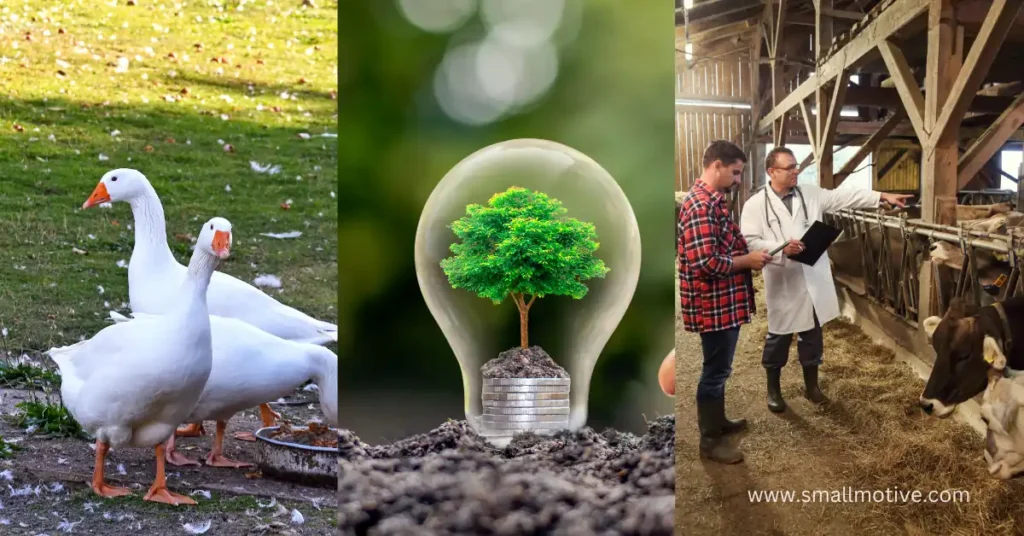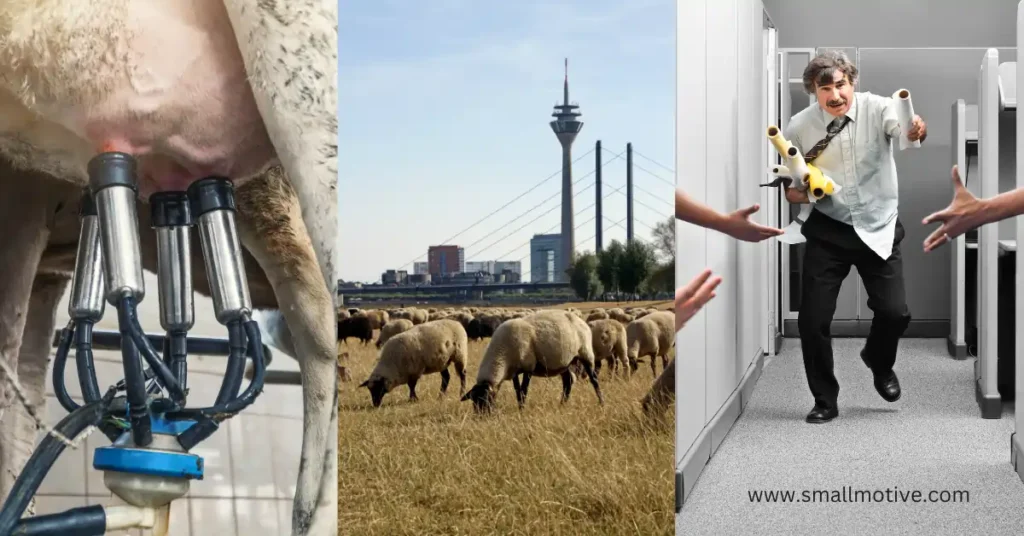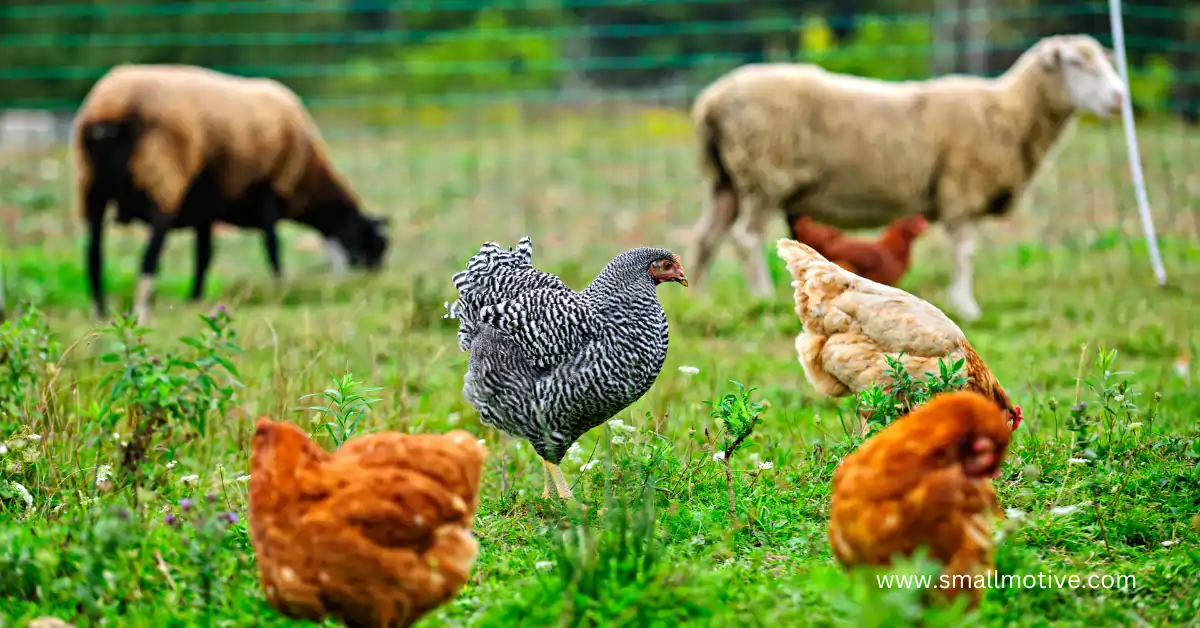Sustainable Livestock: Ensuring a Better Future for Agriculture
Livestock farming has been a cornerstone of agriculture for centuries, providing essential resources like meat, milk, and wool. However, the conventional methods of livestock production have often been criticized for their negative environmental impact, ethical concerns, and unsustainable practices. In recent years, there has been a growing awareness of the need for sustainable livestock farming practices to ensure the long-term health of our planet and the well-being of future generations.
Introduction to Sustainable Livestock
Definition and Importance
Sustainable livestock farming refers to the production of animal products using practices that prioritize environmental conservation, social responsibility, and economic viability. It aims to meet the current demand for animal products while preserving natural resources and minimizing negative impacts on ecosystems.
Challenges in Livestock Farming
Traditional livestock farming methods have led to deforestation, soil degradation, water pollution, and greenhouse gas emissions. Additionally, concerns about animal welfare and the ethical treatment of livestock have gained significant attention in recent years.
Principles of Sustainable Livestock
Environmental Sustainability
One of the primary goals of sustainable livestock farming is to minimize its environmental footprint. This includes reducing greenhouse gas emissions, preserving biodiversity, conserving water resources, and minimizing pollution.
Economic Viability
Sustainable livestock farming must also be economically viable for farmers and stakeholders involved. It involves optimizing resource use, reducing production costs, and ensuring fair wages and working conditions for laborers.
Social Responsibility
Livestock farming should prioritize social responsibility by considering the well-being of communities, workers, and consumers. This includes ensuring food security, promoting equitable access to resources, and respecting cultural values and traditions.

Benefits of Sustainable Livestock Farming
Environmental Benefits
Sustainable livestock farming practices can help mitigate climate change, reduce deforestation, and conserve natural habitats. By adopting methods such as rotational grazing, agroforestry, and waste management strategies, farmers can minimize their environmental impact and promote ecosystem health.
Economic Benefits
Investing in sustainable livestock farming can lead to long-term economic benefits for farmers and communities. By improving efficiency, reducing input costs, and accessing premium markets for sustainably produced products, farmers can enhance their profitability and resilience to market fluctuations.
Social Benefits
Sustainable livestock farming can also have positive social impacts by creating employment opportunities, supporting rural livelihoods, and strengthening local economies. Additionally, by prioritizing animal welfare and ethical practices, farmers can build trust and credibility with consumers.
Methods for Achieving Sustainability
Improved Animal Welfare Practices
Enhancing animal welfare is a crucial aspect of sustainable livestock farming. This includes providing access to adequate nutrition, clean water, shelter, and veterinary care, as well as implementing humane handling and transportation practices.
Efficient Resource Management
Optimizing resource use is essential for sustainable livestock farming. This involves minimizing waste, recycling nutrients, and adopting practices such as precision feeding, water conservation, and renewable energy production.
Adoption of Technology
Technology plays a vital role in advancing sustainable livestock farming practices. From precision agriculture tools and genetic selection techniques to remote monitoring systems and alternative protein sources, technological innovations can help improve efficiency, productivity, and environmental performance.

Challenges and Solutions
Environmental Impact of Livestock Farming
Livestock farming is associated with significant environmental challenges, including deforestation, water pollution, and greenhouse gas emissions. However, solutions such as regenerative agriculture, agroecology, and sustainable intensification offer promising ways to mitigate these impacts and promote ecosystem health.
Overcoming Resource Constraints
Limited access to land, water, and feed resources poses challenges for sustainable livestock farming, particularly in regions with growing populations and competing land uses. Addressing these constraints requires innovative approaches such as integrated landscape management, resource-sharing agreements, and alternative feed sources.
Addressing Socioeconomic Issues
Socioeconomic factors such as poverty, inequality, and lack of access to education and healthcare can undermine efforts to promote sustainable livestock farming. Addressing these issues requires a holistic approach that considers the social, economic, and cultural context of farming communities and engages stakeholders at all levels.
Case Studies of Successful Sustainable Livestock Projects
Examples from Different Regions
Across the globe, there are numerous examples of successful sustainable livestock projects that demonstrate the feasibility and benefits of adopting innovative practices. From small-scale family farms to large-scale commercial operations, these projects showcase a range of approaches to sustainable livestock farming.
Impact and Lessons Learned
By studying these case studies, policymakers, researchers, and practitioners can gain valuable insights into the challenges and opportunities associated with sustainable livestock farming. They can learn from both successes and failures and identify strategies for scaling up sustainable practices and replicating positive outcomes.
Future Trends in Sustainable Livestock Farming
Technological Innovations
Advancements in technology, such as precision agriculture, genetic engineering, and digital monitoring systems, are expected to revolutionize the way livestock farming is conducted. These innovations will enable farmers to improve efficiency, productivity, and sustainability while minimizing environmental impact.
Policy Changes
Governments and policymakers play a crucial role in promoting sustainable livestock farming through regulations, incentives, and support programs. By implementing policies that encourage sustainable practices, reduce environmental externalities, and support rural development, policymakers can create an enabling environment for sustainable agriculture.
Consumer Awareness and Demand
Consumer preferences are increasingly influencing the livestock industry, with a growing demand for sustainably produced and ethically sourced products. By educating consumers about the environmental and social impacts of their food choices and providing transparent labeling and certification schemes, producers can meet consumer demand for sustainable livestock products.

Conclusion
Sustainable livestock farming is essential for ensuring the long-term health and viability of our agricultural systems. By prioritizing environmental conservation, economic viability, and social responsibility, we can create a more sustainable and resilient food system that benefits both people and the planet.
FAQs (Frequently Asked Questions)
1. What is sustainable livestock farming?
Sustainable livestock farming refers to the production of animal products using practices that prioritize environmental conservation, social responsibility, and economic viability.
2. Why is sustainable livestock farming important?
Sustainable livestock farming is important for mitigating climate change, preserving natural resources, promoting animal welfare, and supporting rural livelihoods.
3. What are some examples of sustainable livestock farming practices?
Examples of sustainable livestock farming practices include rotational grazing, agroforestry, waste management, precision feeding, and humane animal handling.
4. How can consumers support sustainable livestock farming?
Consumers can support sustainable livestock farming by choosing products that are certified as sustainably produced, ethically sourced, and environmentally friendly.
5. What role do policymakers play in promoting sustainable livestock farming?
Policymakers play a crucial role in promoting sustainable livestock farming through regulations, incentives, and support programs that encourage farmers to adopt sustainable practices.

1 thought on “Sustainable Livestock: A Greener Approach | Tips & Practices”